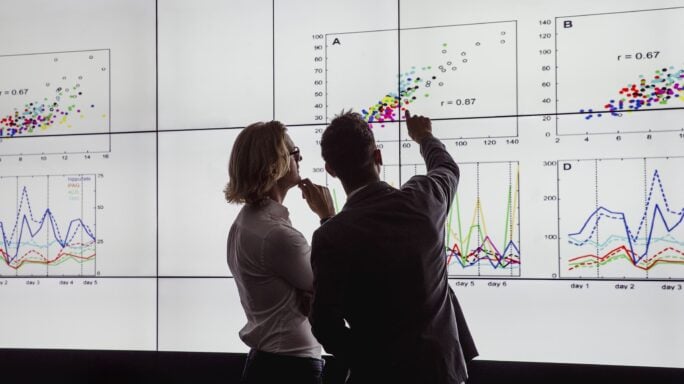Accountants
Understanding blockchain and its impact on accounting

Blockchain has been getting quite a bit of coverage, analysis, and debate in the marketplace since bitcoin burst onto the scene at the end of 2017. What are the real implications regarding blockchain for the accounting profession? While cryptocurrencies may have gotten the majority of the coverage and analysis as it relates to blockchain technology, the underlying technology itself may hold more significant potential for the accounting profession. Put another way, the cryptocurrency market, platforms, and options may have attracted the attention of accountants to the potential of blockchain, but realizing what options exist is an important step to realizing its full potential.
Even more important for the profession, being able to understand, articulate, and communicate the key components of blockchain technology will enable accountants and CPAs to elevate work products and services to the oft-mentioned level of strategic partner.
Blockchain explained
There are a few characteristics of blockchain technology that make it unique and differentiated versus other market options that employ decentralized ledger technology. At the core of the blockchain, ideally, are immutability, verifiability, instantaneous transmission of information, and the anonymity that can be granted depending on the organization in question. On top of these characteristics, which make the blockchain different from other existing options in the marketplace, there are specific use cases and implementation steps that are already making this technology differentiated from existing market options.
The following three implications and insights are not only exciting from a forward-looking basis but in fact are already underway in the marketplace.
- First, and perhaps most importantly is to understand that blockchain is not an accounting system, finance system, or bookkeeping platform. Any information can be batched and uploaded for approval by blockchain members, which take the form of computers or servers that have downloaded and installed the appropriate blockchain software. Blockchain platforms are cloud-based networks for sharing, verifying, and communicating information among different users and groups.
- Second, the actual approval process by which the blocks of information added to previous blocks, forming the blockchain, can be customized depending on the organizations in question. That said, there are several options available for organizations and networks, including the Proof of Work methodology utilized by the most well-known blockchain platform that underpins bitcoin.
- Third, and essential for the conversation as it relates to accounting, attest, and other financial services professionals is that just because different organizations are part of the same blockchain network does not mean that all data is available for review by all members. From a practical perspective, this means that if your firm has 20 clients as part of the blockchain network, you may be able to see different classes of information, but the 20 different clients do not have to have access to each other’s data. This differentiation, between what data is available in general, and what information is available for members to review, report, and analyze, leads to the next conversation that every accounting professional should have as it connects to blockchain.
Blockchain as a technology is often spoken about, especially in practitioner publications and conversations, as if it was just one option, tool, or application. This may make for simpler conversation and debate, but represents an incomplete view of just how blockchain technology functions. Specifically, there are two broad categories that should form the basis for any comprehensive blockchain discussion, public blockchains, and private blockchains. We are going to take a deeper dive into these differences in a future post, so stay tuned.
Blockchain examples for the accounting profession
If you are reading this article your biggest question past the basic is what does blockchain do for me, what does it mean for my practice, and what does it mean for my future in the profession?
Drilling down to accounting specific applications, there are three major takeaways where blockchain will have the greatest impact that you need to be ready for. The first two are where we will see the disruptive change happen and the third is the transformation change that you need to position yourself to leverage.
-
Accounting will become more continuous
As a larger amount of data, including financial but also operational information, becomes more readily available and is available in a secure (encrypted) manner, accountants will be able to make use of this data. Information is produced by organizations in a volume that is almost unimaginable in the current market environment, but most accounting practices are still based on a periodic review and analysis. As information is secured, encrypted, and transmitted to network members, accounting professionals can provide more real-time advice and guidance.
-
Audits are going to be transformed
Clearly, there will always be a need and market expectation for human oversight and review of automated processes. This is an important point to emphasize, that even as accounting becomes more automated and continuous in nature, periodic review and analysis of automated results will be necessary. Even with this human oversight, and occasional intervention, large chunks of the audit process are going to be significantly automated, augmented, or replaced entirely. Market evidence of these changes are already evident at larger firms such as the Big 4, and all indications point to continued technology integration going forward.
-
New service lines will be opened
This is the major opportunity that blockchain will provide to our profession. With the increased access to your client’s data and more efficient audits, the door will be open for higher value and highly insightful advisory services. This is where blockchain will help drive the change in the profession and open up the doors to being able to provide true value to your clients.
Blockchain may seem like an amorphous and difficult-to-understand concept, but it is also an opportunity for CPAs and accounting professionals to embrace this disruptive technology.
The changing forces of the business landscape, including blockchain, will inevitably have an impact on the accounting profession. Now that you have a better understanding of what blockchain is, you can move into focusing on the three ways it will transform the profession and be ready for the coming transformation.
Read more about blockchain and its impact on accounting:
- A deep dive into blockchain and what it means for accountants
- How blockchain technology is impacting accountants
- Blockchain, cryptocurrency and Bitcoin for businesses
- The ABCs of innovation: 3 technologies transforming accounting
Editor’s note: This article was originally published June 14, 2018 as “What is blockchain? Back to the basics.”








Hello Dr. Smith,
I find it interesting how blockchain technology has been around for more than a decade but seems like it’s just getting started. I agree that blockchain technology will become a staple for the majority of businesses in the future. This innovative technology has been around for years, so my question to you is, why do you think it has taken so long for blockchain technology to become adopted by companies?